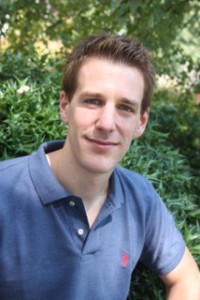- Research,
"Crowdsourcing Societal Tradeoffs", Markus Brill, IRIT workshop

on the May 26, 2015
1.00 pm
Unknown label
ME303
ME303
Markus Brill from Duke University will talk about "Crowdsourcing Societal Tradeoffs".
Abstract:
It would be desirable if, as a society, we could reduce the amount of landfill trash we create, the amount of carbon dioxide we emit, the amount of forest we clear, etc. Since we cannot (or are in any case not willing to) simultaneously pursue all these objectives to their maximum extent, we must prioritize among them. Currently, this is done mostly in an ad-hoc manner, with people, companies, local governments, and other entities deciding on an individual basis which of these objectives to pursue, and to what extent.A more systematic approach would be to set, at a global level, exact numerical tradeoffs: using one gallon of gasoline is as bad as creating x bags of landfill trash. Having such tradeoffs available would greatly facilitate decision making, and reduce inefficiencies resulting from inconsistent decisions across agents. But how could we arrive at a reasonable value for x?In this talk, I argue that many techniques developed in the multiagent systems community, particularly those under economic paradigms, can be brought to bear on this question. I lay out our vision and discuss its relation to computational social choice, mechanism design, prediction markets, and related topics.
Joint work with Vincent Conitzer and Rupert Freeman.
Link to paper: http://www.cs.duke.edu/~conitzer/crowdsourcingAAMAS15.pdf
Bio:
Markus Brill is a postdoc at the Department of Computer Science at Duke University. He received a Ph.D. degree in Computer Science (2012) and diploma (2008) and B.Sc. (2006) degrees in Mathematics from Technische Universität München (TUM), Germany. His research focuses on computational aspects of social choice and game theory. Markus is a graduate of the elite graduate program TopMath. For his Ph.D. thesis Set-Valued Solution Concepts in Social Choice and Game Theory, he received the dissertation award of Bund der Freunde der TUM and an honorable mention for the Artificial Intelligence Dissertation Award sponsored by ECCAI. He is also a recipient of a Research Scholarship by ParisTech and currently holds a Feodor Lynen Research Fellowship, awarded by the Alexander von Humboldt Foundation.
Homepage: http://www.cs.duke.edu/~brill
Joint work with Vincent Conitzer and Rupert Freeman.
Link to paper: http://www.cs.duke.edu/~conitzer/crowdsourcingAAMAS15.pdf
Bio:
Markus Brill is a postdoc at the Department of Computer Science at Duke University. He received a Ph.D. degree in Computer Science (2012) and diploma (2008) and B.Sc. (2006) degrees in Mathematics from Technische Universität München (TUM), Germany. His research focuses on computational aspects of social choice and game theory. Markus is a graduate of the elite graduate program TopMath. For his Ph.D. thesis Set-Valued Solution Concepts in Social Choice and Game Theory, he received the dissertation award of Bund der Freunde der TUM and an honorable mention for the Artificial Intelligence Dissertation Award sponsored by ECCAI. He is also a recipient of a Research Scholarship by ParisTech and currently holds a Feodor Lynen Research Fellowship, awarded by the Alexander von Humboldt Foundation.
Homepage: http://www.cs.duke.edu/~brill
Updated on May 20, 2015
